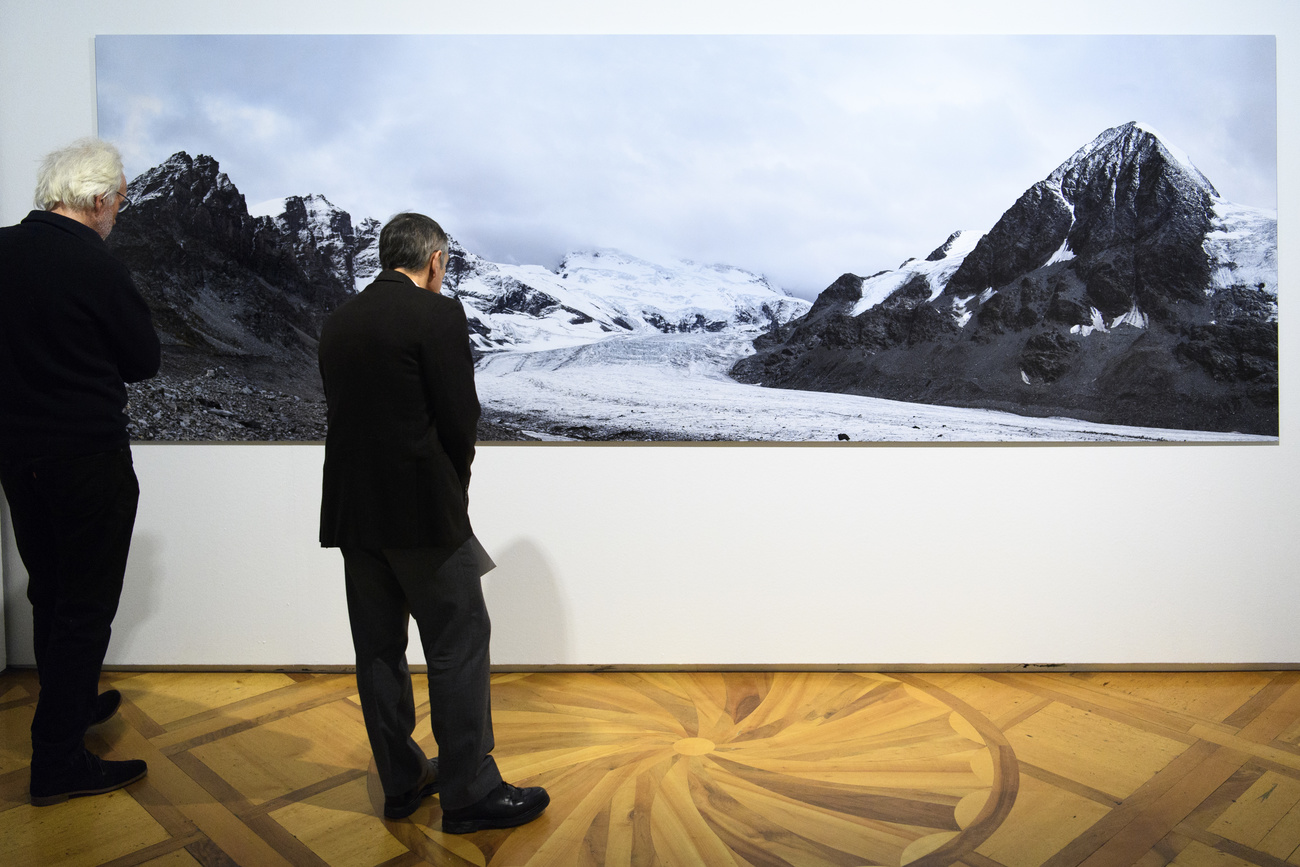Corbassière glacier no longer useful as a climate archive

The Corbassière glacier at the Grand Combin in canton Valais can no longer provide reliable information on past climate and atmospheric pollution. It is melting faster than previously thought, according to a study by Swiss and Italian scientists published in the journal Nature Geoscience.
This is the “disappointing” conclusion reached by the team led by Margit Schwikowski, Director of the Laboratory of Environmental Chemistry at the Paul Scherrer Institute (PSI), and Carla Huber, doctoral student and one of the authors of the study.
As part of the Ice Memory initiative, the PSI scientists, together with colleagues from the University of Fribourg and Ca’ Foscari University in Venice, as well as from the Institute of Polar Sciences of the Italian National Research Council, analysed ice cores drilled from the Corbassière glacier in 2018 and 2020.
+ ‘It’s sad waving goodbye to a dying glacier’
Normally, the quantity of trace elements in ice varies according to the season. These substances, such as ammonium, nitrate and sulphate, come from the ambient air and are deposited on the glacier by snowfall: in summer, their concentration is high, while in winter it is low, because the cold prevents the polluted air from rising from the plain.
The 2018 ice core showed the expected variations, containing deposits dating back to 2011. The 2020 core, on the other hand, only shows these variations in the upper three to four annual layers. Further down in the ice, and therefore further back in time, the curve flattens out and the total quantity is smaller.
+ Why melting glaciers affect us all
History is melting away
According to Margit Schwikowski, quoted in a PSI press release on Friday, the melting of the glacier between 2018 and 2020 must have been so great that water penetrated frequently and in large quantities from the surface into the interior of the glacier, taking with it the trace elements it contained.
“But apparently, once there, the water didn’t refreeze, concentrating the trace elements. It just flowed out and washed them away,” concludes the researcher. The climate archive has been destroyed, according to the authors, who see this as the result of the many warm years of the recent past.
Margit Schwikowski, along with other specialists from around the world, is part of the Ice Memory Foundation initiative. The aim of this initiative is to collect ice cores from 20 endangered glaciers around the world over a 20-year period in order to build up a global climate archive.
+ Cold cases: Swiss glaciers reveal grisly surprises
The ice core from the Grand Combin was supposed to be one of these 20 samples. “On the mountain, we had already realised that it wasn’t going to work,” concludes Margit Schwikowski. The scientists had to interrupt the expedition, even though their initial plan was to drill 80 metres down to the rocky bedrock to capture the entire glacier archive, which dates back several thousand years.
This news story has been written and carefully fact-checked by an external editorial team. At SWI swissinfo.ch we select the most relevant news for an international audience and use automatic translation tools such as DeepL to translate it into English. Providing you with automatically translated news gives us the time to write more in-depth articles. You can find them here.
If you want to know more about how we work, have a look here, and if you have feedback on this news story please write to english@swissinfo.ch.

In compliance with the JTI standards
More: SWI swissinfo.ch certified by the Journalism Trust Initiative
You can find an overview of ongoing debates with our journalists here. Please join us!
If you want to start a conversation about a topic raised in this article or want to report factual errors, email us at english@swissinfo.ch.